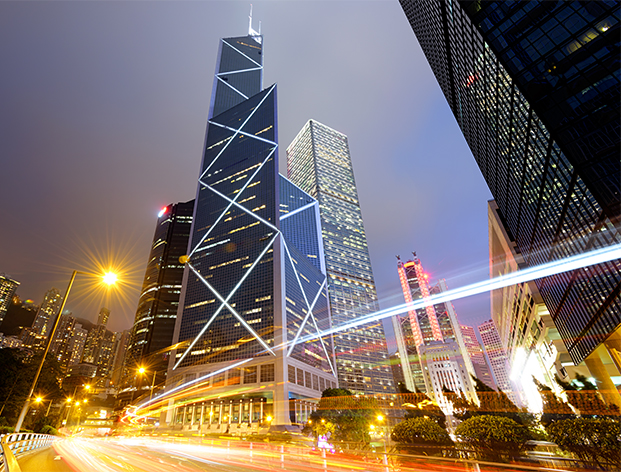HSBC’s chief executive John Flint says the trade war between the US and China is yet to affect the bank’s trade business in Asia.
Speaking on an earnings call after the bank announced a 4.6% rise in net profit for the first half of 2018, Flint said that the forceful rhetoric could do more harm that the trade spat itself.
China and the US have been engaged in a tit-for-tat tariff battle for months. In the latest escalation on Tuesday, the US announced that it will collect tariffs on a further US$16bn of Chinese goods from August 23. This follows existing tariffs on US$34bn, introduced in July, taking the cumulative total to US$50bn-worth of Chinese goods.
While US President Donald Trump says the “tariffs are working big time”, Flint shrugged off their material impact to date.
“We haven’t yet seen any meaningful impact on our customer base either through activity or risk profile. It’s too early to know if that will make an impact. When we think about the trade wars, I think from my perspective I am more concerned with the trade rhetoric damaging investor sentiment, investor confidence and sending markets lower. I think that could have more impact on our wealth business,” he said.
Trade finance revenues were up for the first half of the year, while the vast majority of the bank’s profitability is coming in Asia. Of the US$10.7bn total profit before tax, US$9.4bn came from Asia.
Despite that, higher than expected costs meant that the profit missed consensus predictions. Chief among the expenditure hikes were technological investments, with the bank singling out its recent blockchain experiments in Hong Kong as one area of progress.
Other banks in the region have voiced their concerns about the potential of the trade war to eat into profitability.
Speaking this week as OCBC announced a 16% hike in net profitability for the second quarter, chief executive Samuel Tsien said that “the concern is not only trade itself, it is actually a shrinkage of the economies that we would see in the event that it is carried out to the extent of the rhetoric”.
DBS CEO, Piyush Gupta, upon announcing 20% rise in profits, described the trade war as a “psychological challenge”.
He told CNBC: “The fact that people are more uncertain about where this is going creates a degree of lower confidence and that results, whether it’s the credit spreads or the stock market, in animal spirits in the region coming off.”
Meanwhile, China’s export data for the month of July beat analysts’ forecasts, posting 12.2% growth.
“Shipments to the US did weaken slightly, which hints at some impact from the tariffs. Equally though, this may reflect a broader softening in economic momentum among developed economies given that exports to the EU edged down too,” says Julian Evans-Pritchard, China economist at Capital Economics, in a note.







